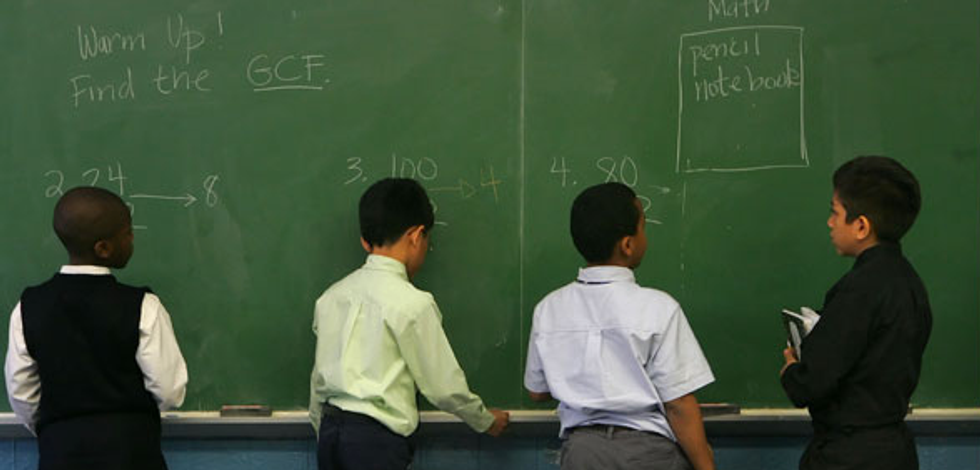I am a product of a low income elementary school, and I have seen how teachers strive to do the best they can with what they have to help students succeed. Unfortunately, sometimes the sweat and tears of teachers is simply not enough.
When my brother graduated high school, he was asked what school he went to, since in our hometown, we take pride in mascots. When he responded, the person who asked him was shocked that he even graduated. Unfortunately, for many that attended that same school, graduation was not even considered. When disproportionately higher rates of minority children attend low-income schools, they are molded into stereotypes, some not even expected to make it, and that is how they are treated, as just another number.
An article in The Atlantic titled, "The Concentration of Poverty in American Schools" states:
"In almost all major American cities, most African American and Hispanic students attend public schools where a majority of their classmates qualify as poor or low-income, a new analysis of federal data shows.
This systemic economic and racial isolation looms as a huge obstacle for efforts to make a quality education available to all American students. Researchers have found that the single-most powerful predictor of racial gaps in educational achievement is the extent to which students attend schools surrounded by other low-income students.
...Reardon said, isn’t 'that sitting next to a poor kid makes you do less well in school.' Rather, he said, 'it’s that school poverty turns out to be a good proxy for the quality of a school. They are in poorer communities, they have less local resources, they have fewer parents with college degrees, they have fewer two parent families where there are parents who can come spend time volunteering in the school, they have a harder time attracting the best teachers. So for a lot of reasons schools serving poor kids tend to have fewer resources, both economic and social capital resources.'"
When we look at all of the contributors to what make students less likely to succeed, we can see that why it is vital to push for resources at school, which could help students break away from the cycle of poverty that many are born into.
The U.S. Department of Education found that "More Than 40% of Low-Income Schools Don't Get a Fair Share of State and Local Fund."
Secretary of Education Arne Duncan said, "Educators across the country understand that low-income students need extra support and resources to succeed, but in far too many places policies for assigning teachers and allocating resources are perpetuating the problem rather than solving it."
More resources means more students pushing for a better, brighter future. When you feel that you have the support you need to succeed, you are more likely to want to do it. Many teachers do this for their students, but without proper resources, there is only so much they can do for them.
Of course, a lot of it has to do with parenting as well. However, when parents are not available to be involved with their children's education for reasons such as a language barrier, the students cannot rely solely on them.
You simply cannot neglect low-income students and then later criticize them for not graduating or for ending up in the system, at detention centers, or the like.
Education is key to break free from cycles such as poverty, that have an everlasting effect on those who live it.
I look forward to a future where they push students to move forward and not stay behind, where schools begin to plant seeds of hope in them and not just turn them into another number, another statistic, another could have been, but wasn’t.




















